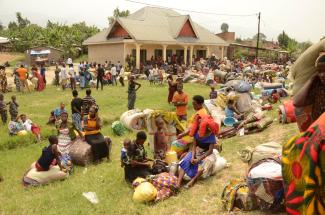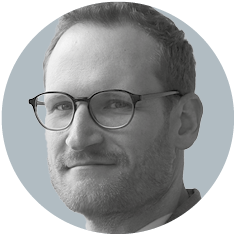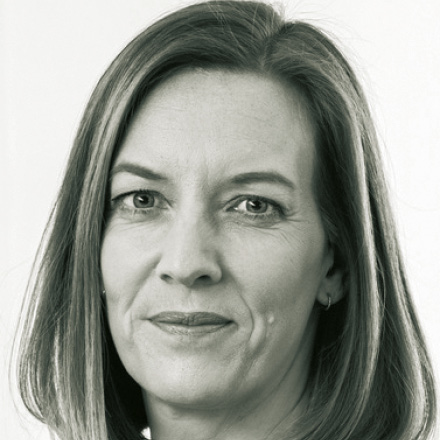Social inclusion
Refugees offer opportunities

In August, according to the UN Refugee Agency UNHCR, Uganda was hosting more than 1.5 million people who have fled from other countries. The nation with not quite 50 million people has thus become an important refuge internationally and the most important one in Africa.
Uganda is politically stable. People are fleeing from two neighbouring countries: the Democratic Republic of the Congo and South Sudan. Conflicts keep flaring up in both countries, so about 100,000 persons have crossed the Ugandan border this year according to data from the UNHCR and the Ugandan government. Refugees from other countries, including Burundi, Somalia and Rwanda, live in Uganda as well.
Uganda has been welcoming people in need for many years (see Ochan Hannington on www.dandc.eu), and its approach to refugees is quite progressive. They are allowed to work and to move freely within the country. Many do not live isolated in camps but in local communities. The children go to the same primary schools. The government has indeed given land to some refugees so they can cultivate fields.
The background of this liberal attitude is that many Ugandans themselves have a history of flight from their country. When the Idi Amin dictatorship collapsed in 1979, tens of thousands escaped to what is now South Sudan.
Huge challenges
National and international aid agencies are lending support to Ugandan communities which are hosting refugees. Nonetheless, the situation is tense in many places. The nation, after all, is facing various difficulties, including, most recently, fast inflation, which is driving up the cost of living (see Ronald Ssegujja Ssekandi on www.dandc.eu).
On behalf of the German development agency GIZ, Roselyn Vusia is working in the West Nile region in north-western Uganda. Her project promotes vocational training for young refugees and local women. Vusia shared insights at an academic conference organised in Kampala in early September by PEGNet (Poverty Reduction, Equity and Growth Network, scroll down to short item below this essay for more information). According to her, some of the most important challenges linked to the presence of refugees are:
- conflicts over who should have access to resources and social services provided to refugees,
- security issues,
- overcrowded classrooms in host communities,
- disputes concerning funding and
- poor infrastructure.
According to her, there are environmental problems too, for example when refugees cut down trees because they need firewood.
In the eyes of Tony Odokonyero, unsanitary conditions make the spread of diseases more likely in many places. He specialises in health issues at the Economic Policy Research Centre (EPCR), a Kampala-based think tank He also expresses concern for maternal health, bemoaning the lack of professional staff, appropriate facilities and good equipment. Cesarean sections are thus all too often impossible.
Positive impacts
There are upsides to hosting refugees too, however. Philip Verwimp, a development economist from the Université libre de Bruxelles, focuses on the potential positive impacts. In Tanzania, for example, many local households benefited from the presence of Rwandan refugees, as the professor reports. Farm productivity increased due to affordable Rwandan workers, so several farms switched from subsistence agriculture to commercial agriculture. In Verwimp’s view, Uganda can benefit too, for example, when refugees cultivate so far unused land.
The scholar points out that the approach to refugees in other world regions, including the EU, differs quite a bit from the Ugandan one. “We are not tapping the refugee’s potential,” he says. According to him, they should be included in society, rather than accommodated in the isolation of camps. As consumers and producers, they would then contribute to the development of national economies. Verwimp argues that refugees’ inclusion is really a cultural issue, not an economic one.
Jörg Döbereiner is a member of the editorial team of D+C Development and Cooperation / E+Z Entwicklung und Zusammenarbeit.
euz.editor@dandc.eu
PEGNet’s annual conferences
PEGNet is managed by the Kiel Institute for the World Economy. The network's mission is to promote research cooperation with developing countries and to foster exchange between academic institutions and development agencies. Annual PEGNet conferences serve this purpose. This year’s conference in Kampala in early September was the first one after the pandemic hiatus and co-organised by the Economic Policy Research Centre (EPRC), a think tank based in Kampala. The topic was: “Addressing fragility and conflict in developing countries”.
PEGNet was launched in 2005 by the Kiel Institute, Germany’s Federal Ministry for Economic Cooperation and Development (BMZ), the GIZ, the KFW Development Bank and scholars from the universities of Göttingen and Frankfurt. It is funded by the BMZ. D+C/E+Z is a media partner of the annual PEGNet conferences.


